Raising the policy loan limit
(Baonghean) - In order to increase people's access to capital in all regions nationwide, since March 2019, the Vietnam Bank for Social Policies has officially increased the maximum loan level for poor households, near-poor households and households borrowing for socio-economic development in ethnic minority and mountainous areas.
This is one of the solutions to help other types of credit institutions in the banking industry push back informal credit.
Maximum loan term increased to 120 months
Recently, the Social Policy Bank, Nghe An Branch has promptly taken advantage of the attention of the Central Bank, actively advised to increase local support resources, and at the same time promoted capital mobilization from organizations and individuals in the area. Thanks to that, it has exceeded the assigned capital mobilization target, by December 31, 2018, the total capital reached 7,770 billion VND.
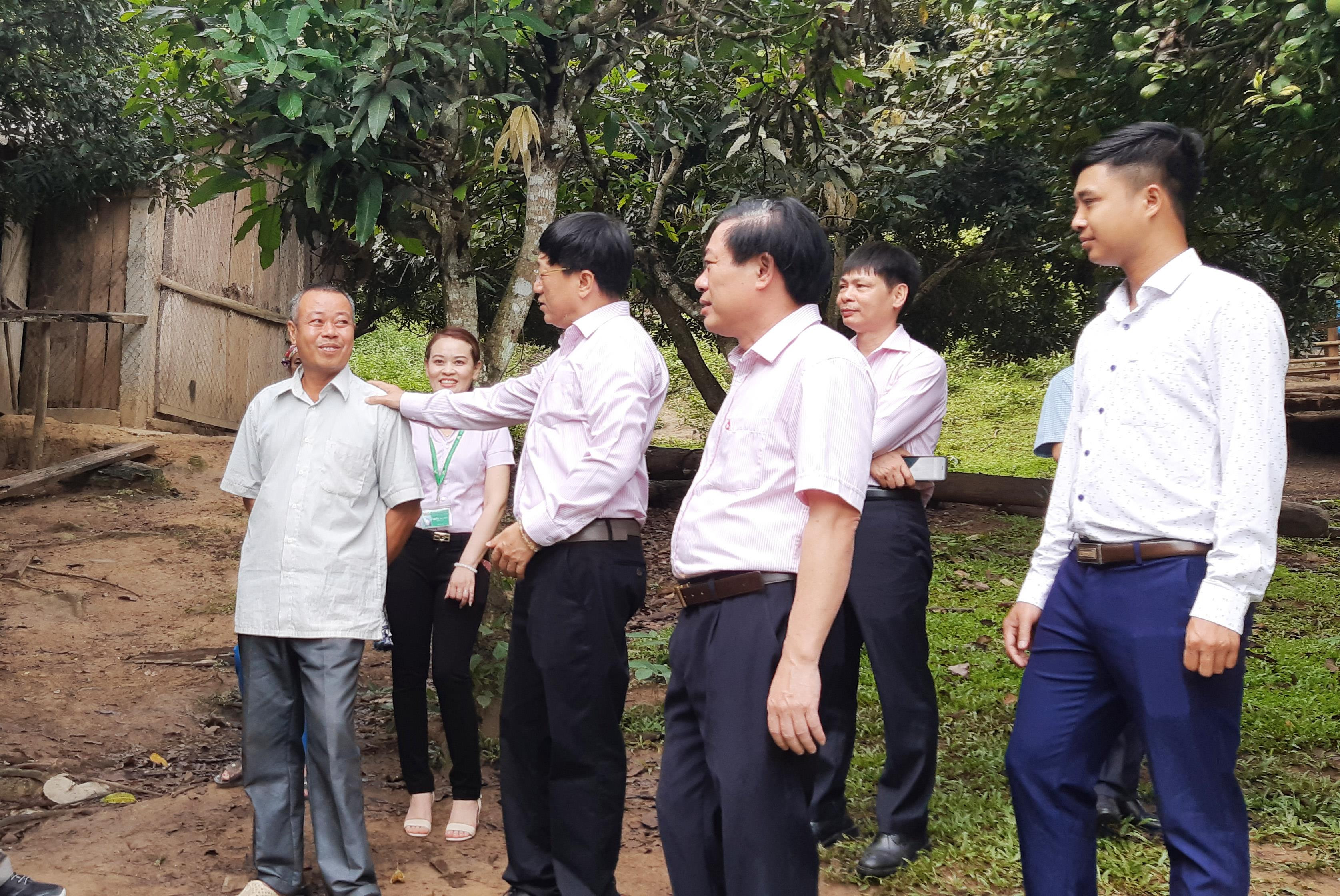 |
| General Director Duong Quyet Thang encouraged Ky Son people to make full use of loan capital and develop household economy. Photo: Viet Phuong. |
Regarding capital use, the Branch has focused on directing the promotion of outstanding debt growth, for areas with low outstanding debt, where it is difficult to increase outstanding debt due to the lack of priority for capital sources to ensure a stable and reasonable outstanding debt level.
Up to now, the total outstanding loan balance of the branch has reached 7,746 billion VND, an increase of about 546 billion VND, an estimated growth of about 7.6%, completing approximately 100% of the assigned plan. The branch has advised and directed lending activities in a timely manner, achieving good results: Loan turnover reached over 2,705 billion VND, equal to 114% of 2017. Debt collection turnover reached 2,175 billion VND, equal to 111% of 2017.
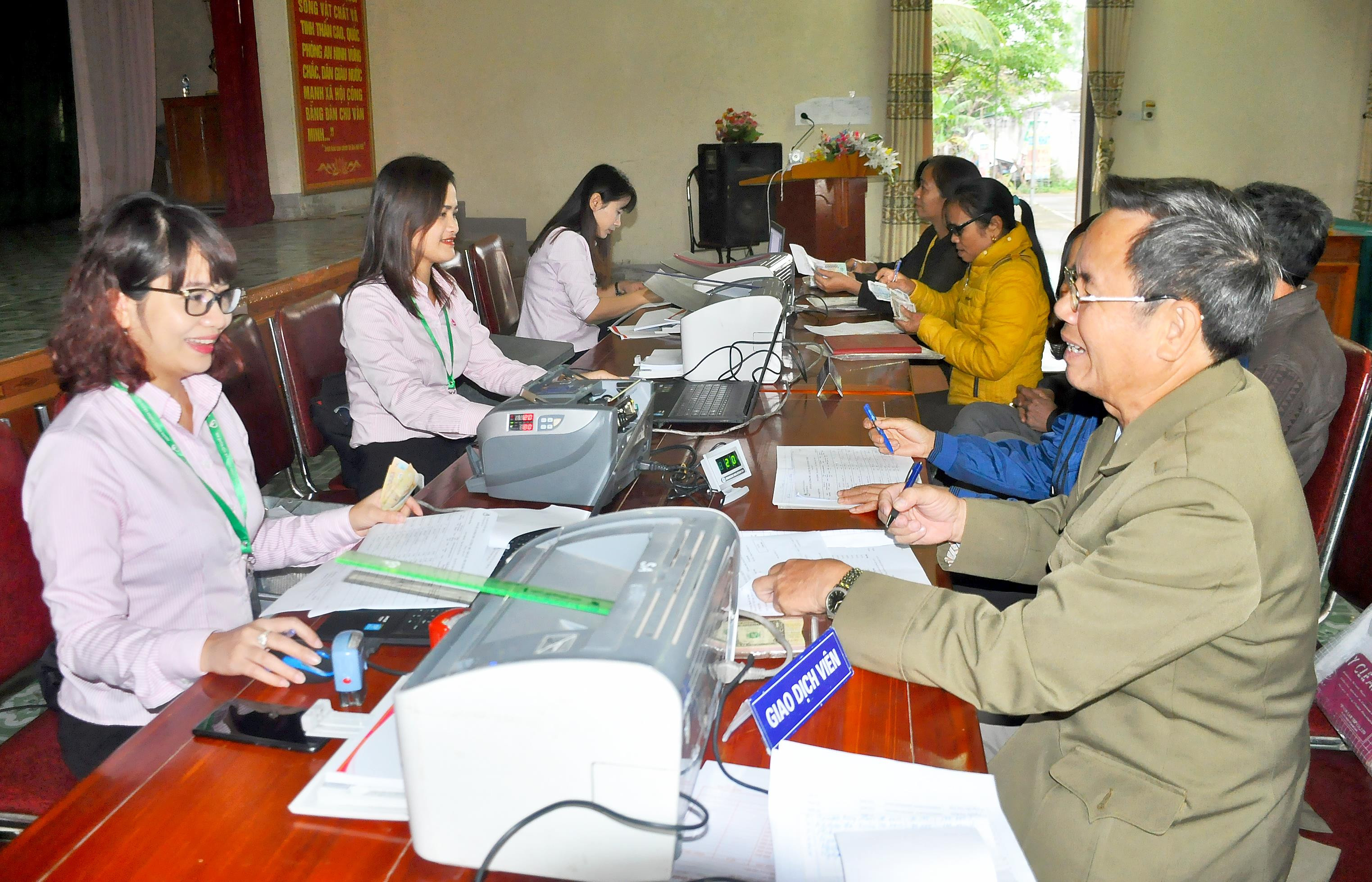 |
| Nghi Loc District Social Policy Bank transaction office disburses capital. Photo: Viet Phuong |
Accordingly, from March 1, 2019, credit programs at the Bank for Social Policies include: Loan program for near-poor households; Loan program for newly escaped-poverty households and Loan program for socio-economic development in ethnic minority and mountainous areas according to Decision No. 2085/QD-TTg dated October 31, 2016, the Prime Minister stipulates that the maximum loan amount does not exceed the maximum loan amount applicable to poor households in each period, the maximum loan amount is increased to 100 million VND/borrowing household without loan collateral.
Regarding loan terms, the Social Policy Bank increased the maximum loan term for the poor household lending program to 120 months. Accordingly, the near-poor household lending program has the same loan term as the poor household lending program, with the maximum loan term increased to 120 months.
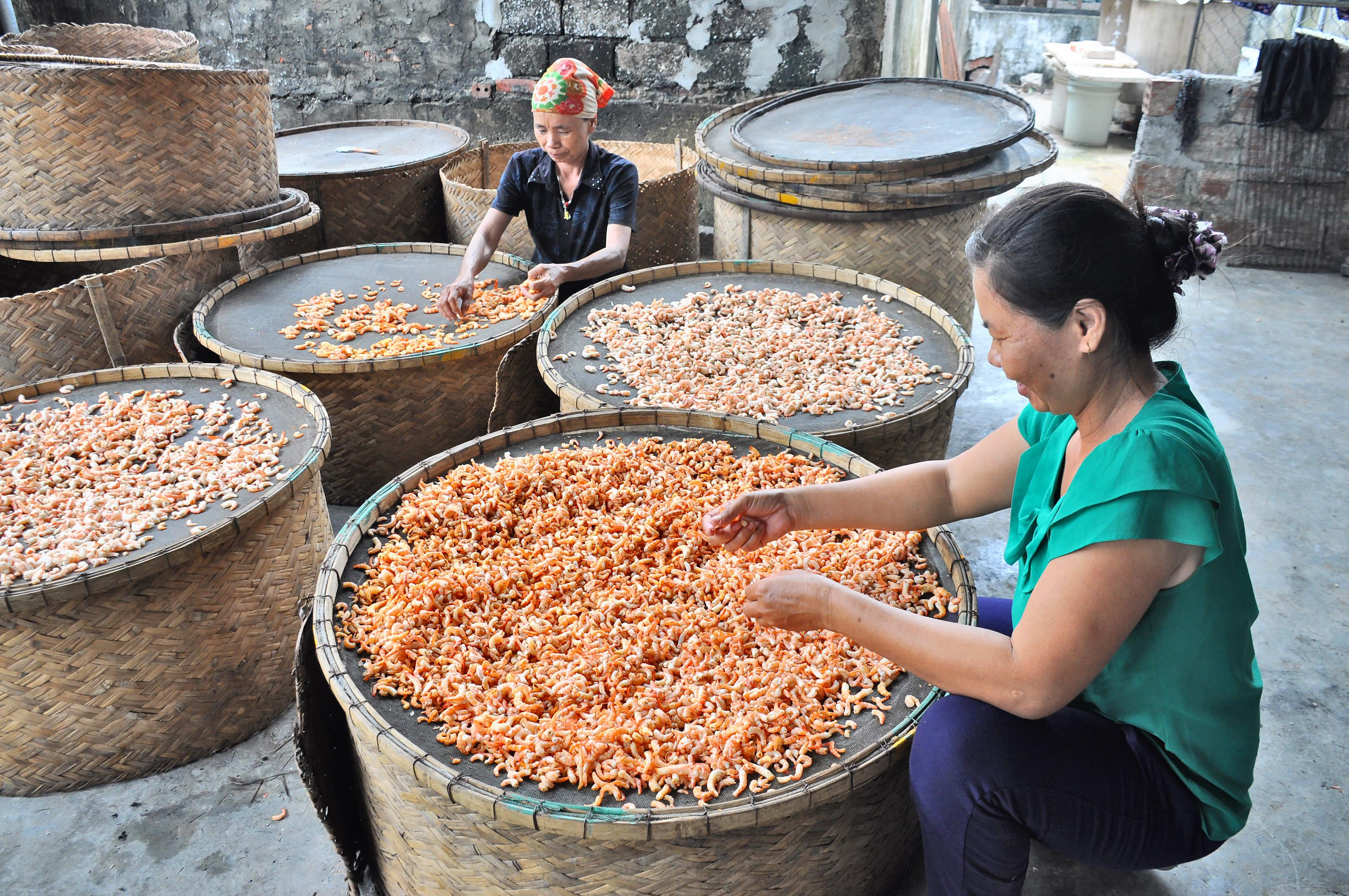 |
| People in Dien Ngoc commune (Dien Chau) borrow capital from the Vietnam Bank for Social Policies to process seafood and develop household economy. Photo: Viet Phuong |
The specific loan amount and loan term for each borrowing household are based on the purpose of loan use, production and business cycle, equity capital, debt repayment capacity of the borrowing household and the loan source of the Vietnam Bank for Social Policies.
In case the borrowers are subjects of the above credit programs and are using the loan capital effectively, paying interest on time as agreed, if they need to borrow more capital to implement a feasible production and business plan, they can borrow additional capital but the outstanding debt level must not exceed 100 million VND/household.
New policy to help the poorIn Quy Chau district, in 2011, Mr. Vu Duc Quy (born in 1950), residing in Moi village, Chau Phong commune, borrowed 20 million VND from the production and business program. With a small amount of accumulated capital, he bought 2 goats, dug a pond to raise fish, and planted acacia trees in his family's forest. Thanks to hard work and proper application of science and technology in the production process, the goat herd reproduced continuously, the fish pond brought good income, the acacia forest grew quickly, and on average, each year, after deducting expenses, it also brought the family an income of 80 million VND. By 2015, he had fully paid the principal and interest to the Social Policy Bank and borrowed an additional 20 million VND from the Production and Business Program to buy 4 breeding cows. Up to now, the family's herd has produced 8 cows, bringing in a high income.
Talking about the new policy of the Social Policy Bank on increasing the maximum loan amount and loan term for poor households, Mr. Quy said: We are grateful and appreciate the capital of the Social Policy Bank, although not large, it is considered as a "fishing rod" to help him and the poor people rise up in life and contribute more to society. With the new policy, it will create more motivation and opportunities for people to access and better utilize loan capital.
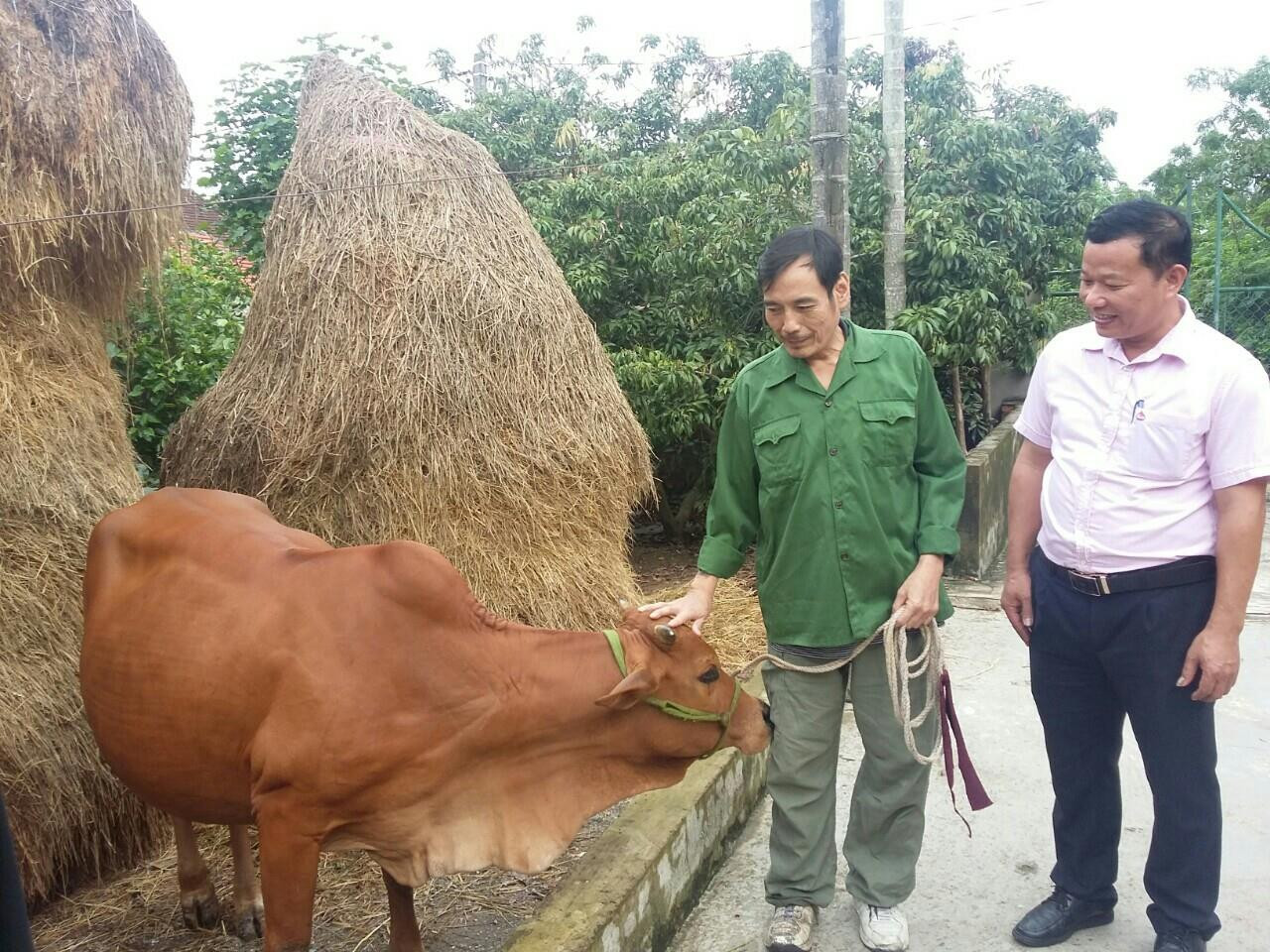 |
| War invalid Phan Viet Hai in hamlet 6, Nam Giang commune, Nam Dan district borrowed preferential loans to invest in effective cow farming. Photo: Viet Phuong |
Going to Que Phong to ask for examples of economic development by union members, many people introduced Thai Huu Trong, born in 1992, in Hai Lam 1 hamlet, Que Son commune. In 2017, he started to develop a farm economy but had difficulty with capital. In 2018, Trong borrowed 100 million VND to reclaim land and develop a 6-hectare farm to raise chickens, ducks, geese, pigs, and plant forests.
Trong shared: From the capital of 100 million VND from the Social Policy Bank (of which 50 million VND is from the loan for job creation, 50 million VND is from the poverty alleviation fund), the farm was built; in 2018, both investment and production were done, but the initial income was 150 million VND.
“Currently, I am working with 6 other young people in the area to cooperate with a business in Hanoi to raise wild boars. The business will supply breeds and consume the products. I hope that the Social Policy Bank will continue to prioritize loans for poor households and policy beneficiaries, focusing on agricultural production, promoting local advantages such as growing passion fruit, intensively cultivating sugarcane gardens, expanding beekeeping, black chickens, and ducks...” - Trong added.
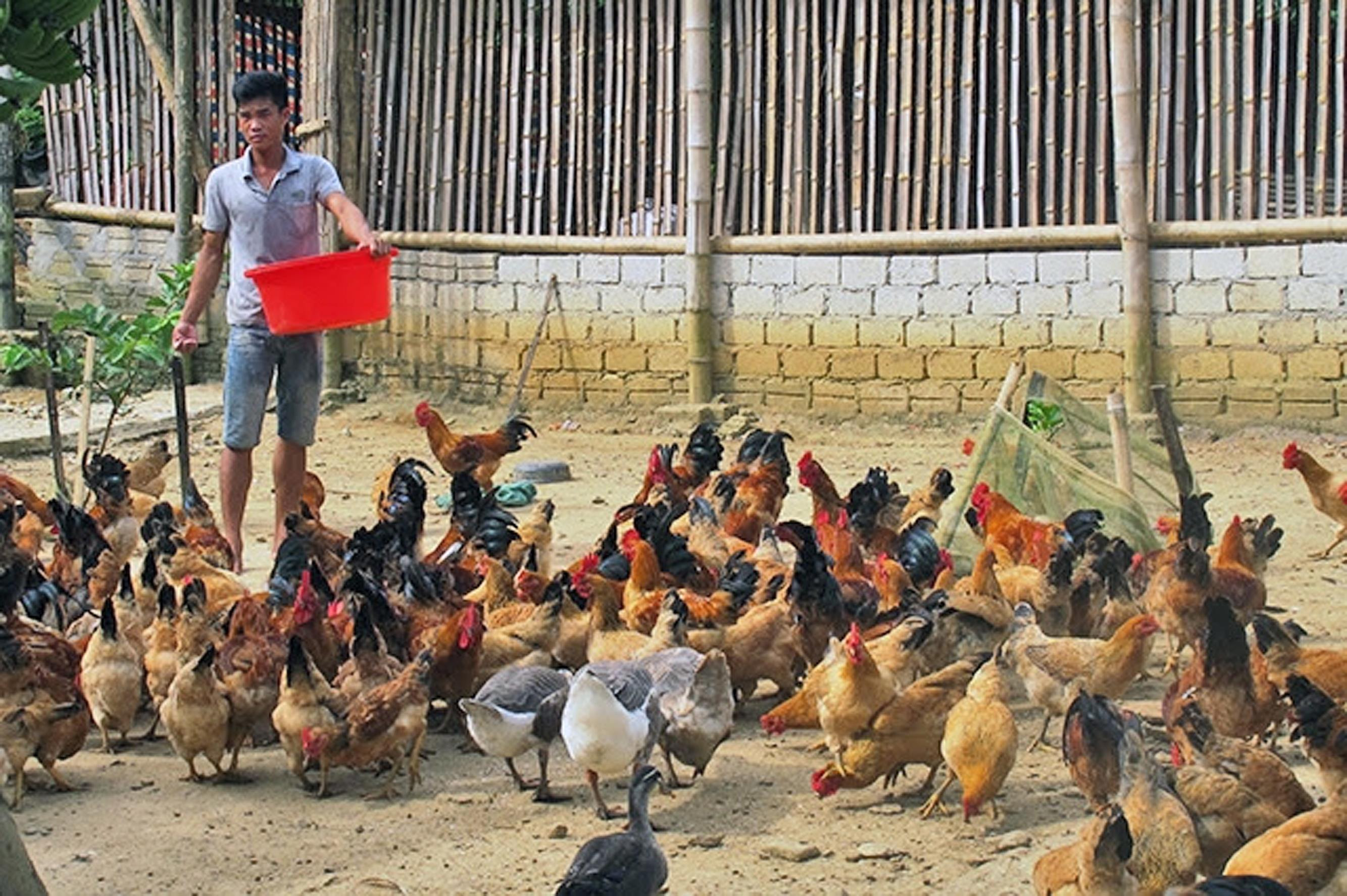 |
| Thai Huu Trong's integrated livestock farm in Que Son commune (Que Phong). Photo: Viet Phuong |
The Que Phong District Social Policy Bank always accompanies all levels and sectors, integrating preferential capital sources with the application of scientific and technical advances to the fields to help the poor and policy beneficiaries convert low-yield rice growing areas to high-yield rice growing and raising specialty plants and animals. In 2018, the total loan turnover reached 67,187 million VND.
Mr. Nguyen Van Hung - Director of the Social Policy Bank of Que Phong district said: In 2018, the Social Policy Bank focused on prioritizing loans for hunger eradication, poverty reduction, and economic development in poor areas, prioritizing loans in communes and villages with projects to reach the New Rural Area target, while rapidly increasing capital sources to support poor households to borrow capital for production, construction and house renovation with an investment capital of over 67 billion VND serving 2,553 poor households, near-poor households, households that escaped poverty and policy families to borrow capital... Thanks to preferential loans from the State, many poor households have had effective business models, have stable incomes, gradually escaped poverty and become rich, such as Mr. Thai Huu Trong in Hai Lam, Que Son; Mr. Ha Van Viet, a war invalid in Na Xai village, Hanh Dich...
According to the leader of the Bank for Social Policies, Nghe An branch, raising the maximum loan amount for the program for poor households, near-poor households, newly escaped-poverty households and households borrowing for socio-economic development in ethnic minority and mountainous areas of the Bank for Social Policies to increase people's access to capital in all regions nationwide is one of the solutions to, together with other types of credit institutions of the banking sector, contribute to pushing back informal credit.

